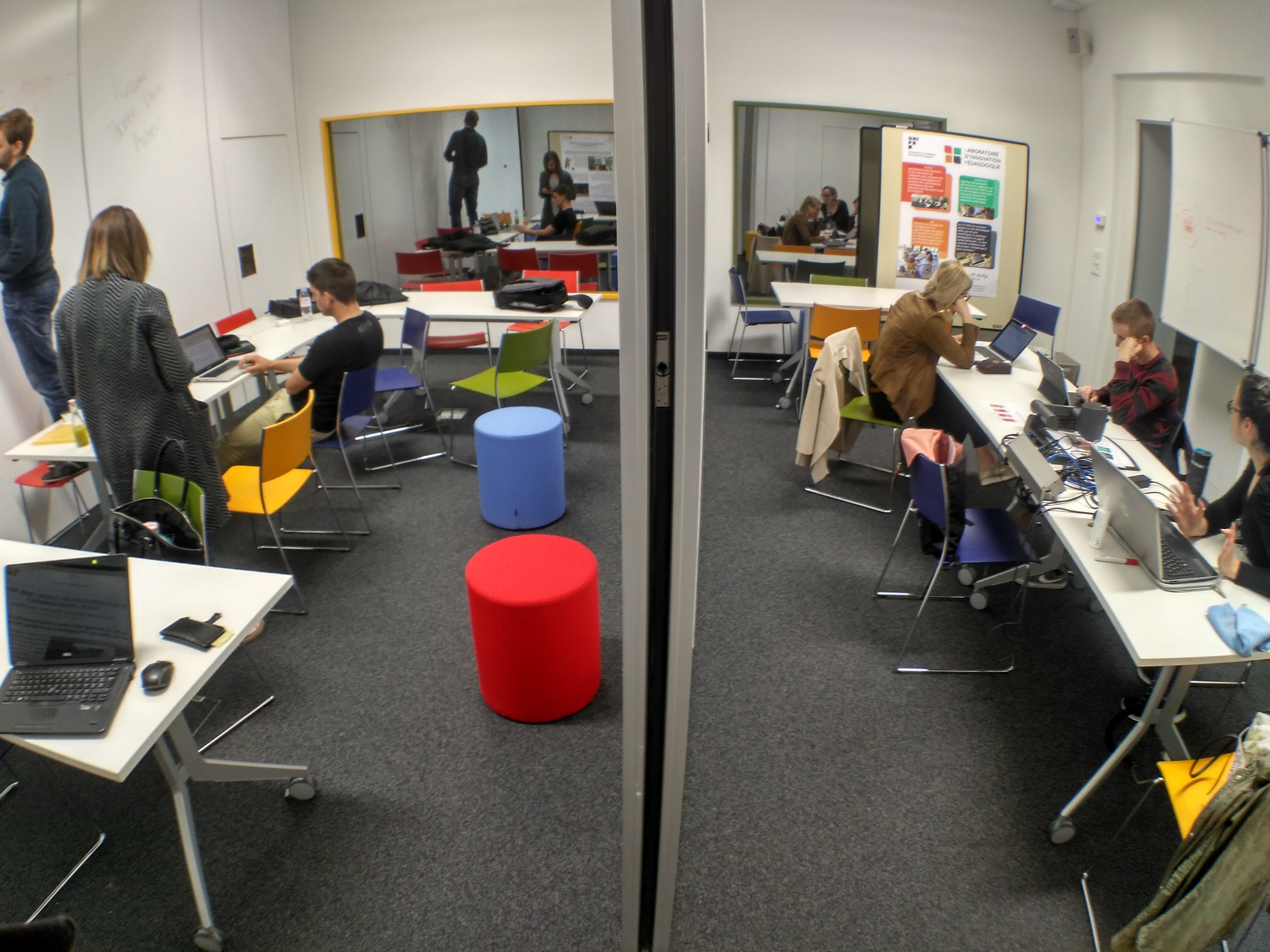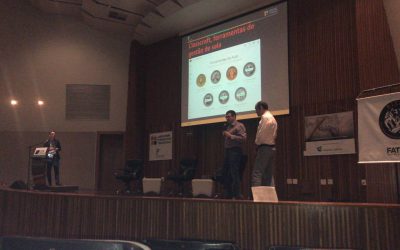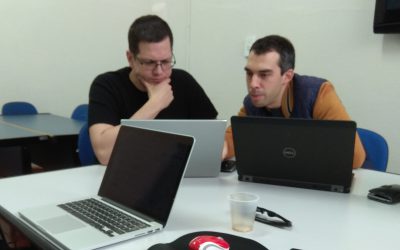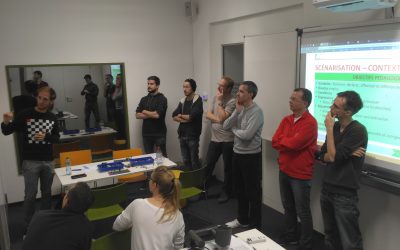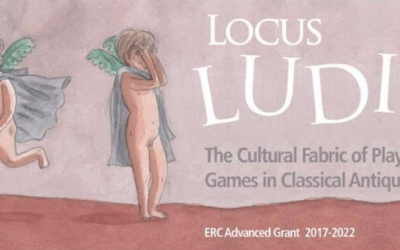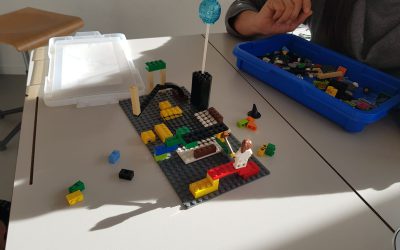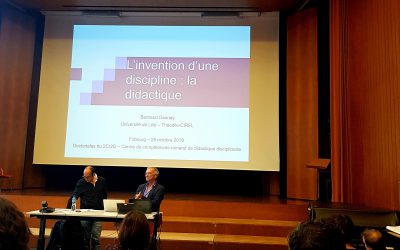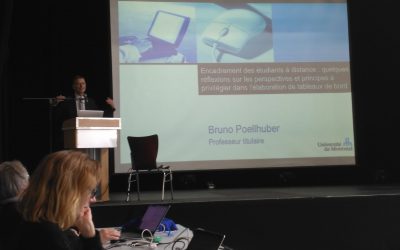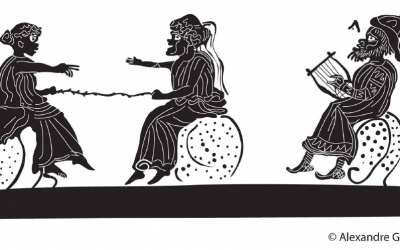co.LAB – A Digital Lab for the co-Design, co-Development and co-Evaluation of Digital Learning Games
Interest in Digital Learning Games (DLGs) has flourished at all levels of education. Digital Learning Games contribute to increasing students’ motivation and engagement, and are effective tools to support learner centered teaching practices. However, the design, development and uses of DLGs remain an issue due to the gap between teachers, game developers and researchers.
At the crossroads between educational and computer sciences the goal of the co.LAB project is to improve the design, development and uses of Digital Learning Games at all educational levels in Switzerland. This goal will be achieved by the development of what we call the co.LAB: a collaborative methodological framework between teachers, game developers and researchers in educational science, associated with a collaborative digital platform dedicated to co-design, co-development and co-evaluation of DLGs.
With the development, implementation and assessment of the co.LAB methodology and digital platform, we want to answer the following research questions (RQ).
RQ1: What methodology is needed to support collaborative DLG design and development?
RQ 2: What are the digital platform features necessary to support the collaborative DLG design and development process?
RQ 3: What are the effects of the methodology and digital platform on development cost and duration (efficiency)?
RQ 4: What are the effects of the methodology and digital platform on the quality of DLGs produced (relevance and effectiveness)?
RQ 5: What are the drivers for adoption of the methodology and digital platform by the educational, game developer, and research communities?
Following a design-based and mixed methodology, the co.LAB methodology and digital platform will be implemented and tested with the design, development and evaluation in real educational contexts of two showcase games dedicated to medical education (higher education) and computational thinking (secondary education). They will be used as a proof of concept. The experimentations will be carried out with classes both in a secondary school and at a university of applied sciences. The data collected will be based on an ethnographic approach on the one hand (questionnaires and focus groups carried out with stakeholders), and on the digital traces of users of the platform on the other hand.
By including a digital infrastructure for digital learning resources development and by providing, as a use test result, two digital learning games the project is fully in line with the PNR77 goals and more specifically with the module “Education, learning and digital change”. In addition, the co.LAB methodology, digital infrastructure and laboratory may serve both as an example of the introduction of digital in education and as a basis for future co-development of open digital educational resources in general.
Durée du projet
01/2020 – 12/2023
Financement
Fonds National Suisse

Requérants principaux
Dominique Jaccard HEIG-VD et Eric Sanchez, Université de Fribourg
Partenariat
Haute Ecole d’Ingénierie et de Gestion du Canton de Vaud
Membres du projet
Estelle Prior Unige
Mariem Jaouadi Unige
Membres associés
Nadine Mandran LIG/U. Grenoble
Matthieu Vermeulen IMT Nord Europe
Emmanuel Beffara U. Grenoble
Gaëlle Guigon IMT Nord Europe
Jérémie Humeau IMT Nord Europe
Anthony Fleury IMT Nord Europe
Contact
Eric Sanchez (eric.sanchez@unifr.ch)
Dernières actualités relatives à cette recherche
Simpósio de Gamificação e Psicologia da FATRA E FRIBOURG
Le séjour du LIP à Uberlandia dans le cadre du projet Classroom Management Ludicized a été l’occasion d’un événement dont l’organisation a été prise en charge par l’Université FATRA. Au cours de cet événement, un symposium a été l’occasion d’une présentation à trois...
Séminaire du CERF : analytique de l’apprentissage
La collecte automatique et l’analyse de données numériques dans le but de comprendre et d’optimiser l’apprentissage ainsi que les dispositifs mis en place est aujourd'hui une méthodologie en plein essor. Ces approches s’inscrivent dans des paradigmes méthodologiques...
Classroom Management Ludicized : premiers résultats
Cette semaine, le LIP est de retour à Uberlandia (Brésil) pour conduire la dernière phase du projet Classroom Management Ludicized financé par la Leading House for the Latin American Region (Université de Saint Gall). La semaine est consacrée au recueil de données sur...
Scénarisation du jeu Programming Game, un jeu d’apprentissage de la programmation
Nous voila parvenus à la phase dédiée à la scénarisation du jeu Programming Game pour le projet PACT qui porte sur l'apprentissage de la programmation avec le jeu (projet financé par la Fondation Hasler et mené en collaboration...
« Bons jeux, mauvais jeux » Formation doctorale Locus Ludi
Cette semaine, le LIP était partie prenante de l’école doctorale « Bon jeux, Mauvais jeux », organisée dans le cadre du projet ERC locus Ludi, piloté par Véronique Dasen. Simon Morard, Elsa paukovics et Eric Sanchez ont présenté le processus de conception qui a été...
Formation « jeu et apprentissage » à l’Institut International de Lancy à Genève
Le 31 octobre 2018, le LIP s’est déplacé à l’Institut International de Lancy pour animer une formation sur la thématique jeu et apprentissage. Il s’agissait, pour la vingtaine d’enseignants de la section francophone du secondaire 2, de s’approprier les concepts...
Les doctoriales du 2Cr2D – Présentation des thèses romandes en didactique disciplinaire
Ce vendredi 26 septembre 2018 a eu lieu la première journée du programme du 2CR2D à la HEP de Fribourg, visant la présentation de thèses romandes en didactiques disciplinaires. Deux doctorantes du LIP, Maud Plumettaz-Sieber et Elsa Paukovics, ont été amenées à y...
Séminaire scientifique EDUDL+ sur le suivi des étudiants
UniDistance et UniGenève ont commencé à définir les contours d’un environnement techno pédagogique de suivi de l’apprenant. Cet environnement repose autant sur des données générées par les plateformes que sur des informations produites par les acteurs de la formation....
Bons ou mauvais jeux ?
Le projet Locus Ludi (projet ERC Advanced Grant 2017-2022) s'est associé au LIP pour organiser une formation doctorale qui se déroulera à l'Universté de Fribourg les 5 et 6 novembre prochains. Durant ces deux journées, archéologues, juristes, économistes, historiens,...
Colloque scientifique Ludovia#CH
Des ressources numériques pour ressourcer les pratiques Le LIP sera de nouveau impliqué dans la présidence du colloque scientifique de l'université d'été Ludovia#CH qui se déroulera à Yverdon du 16 au 18 avril à Yverdon (Suisse). Cette année, la thématique porte sur...

